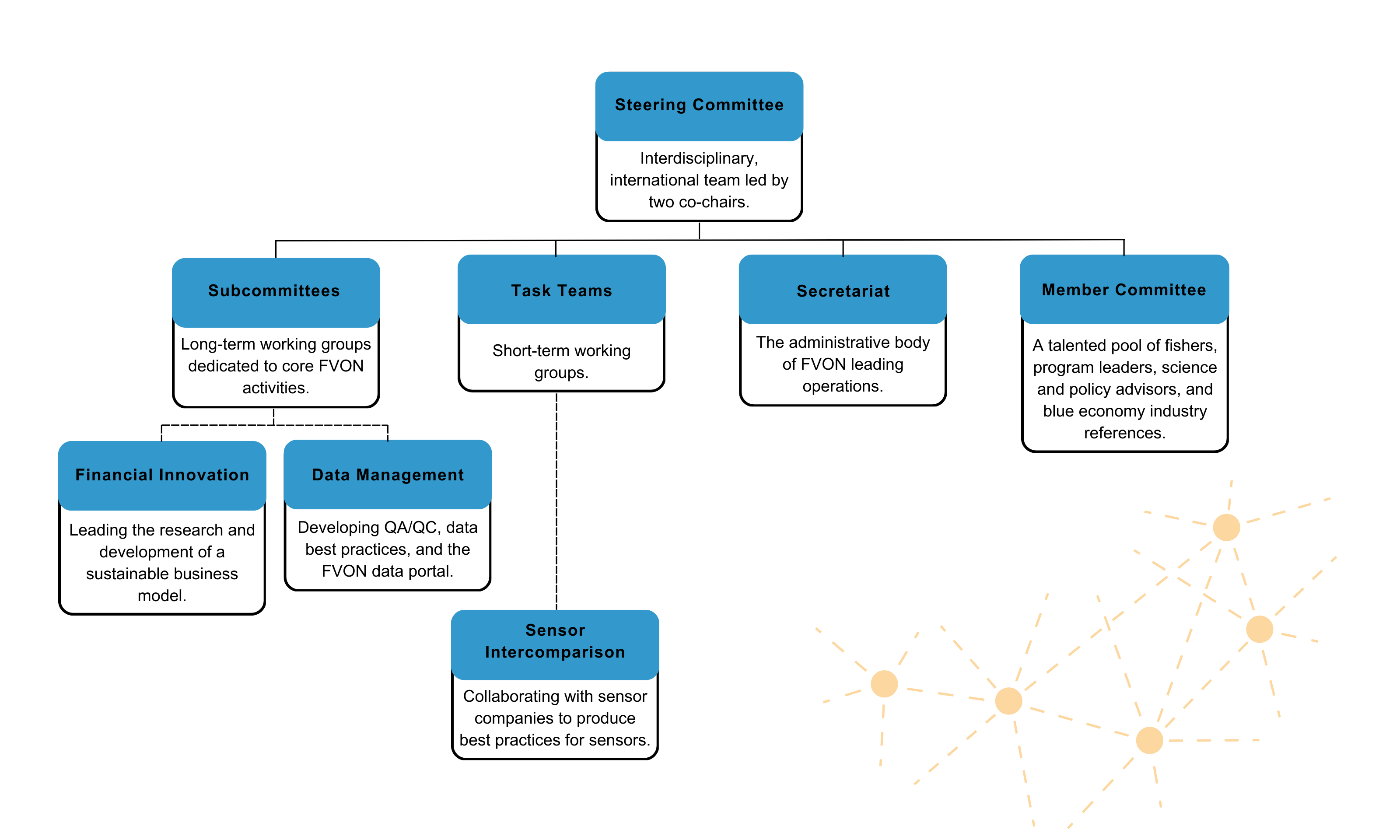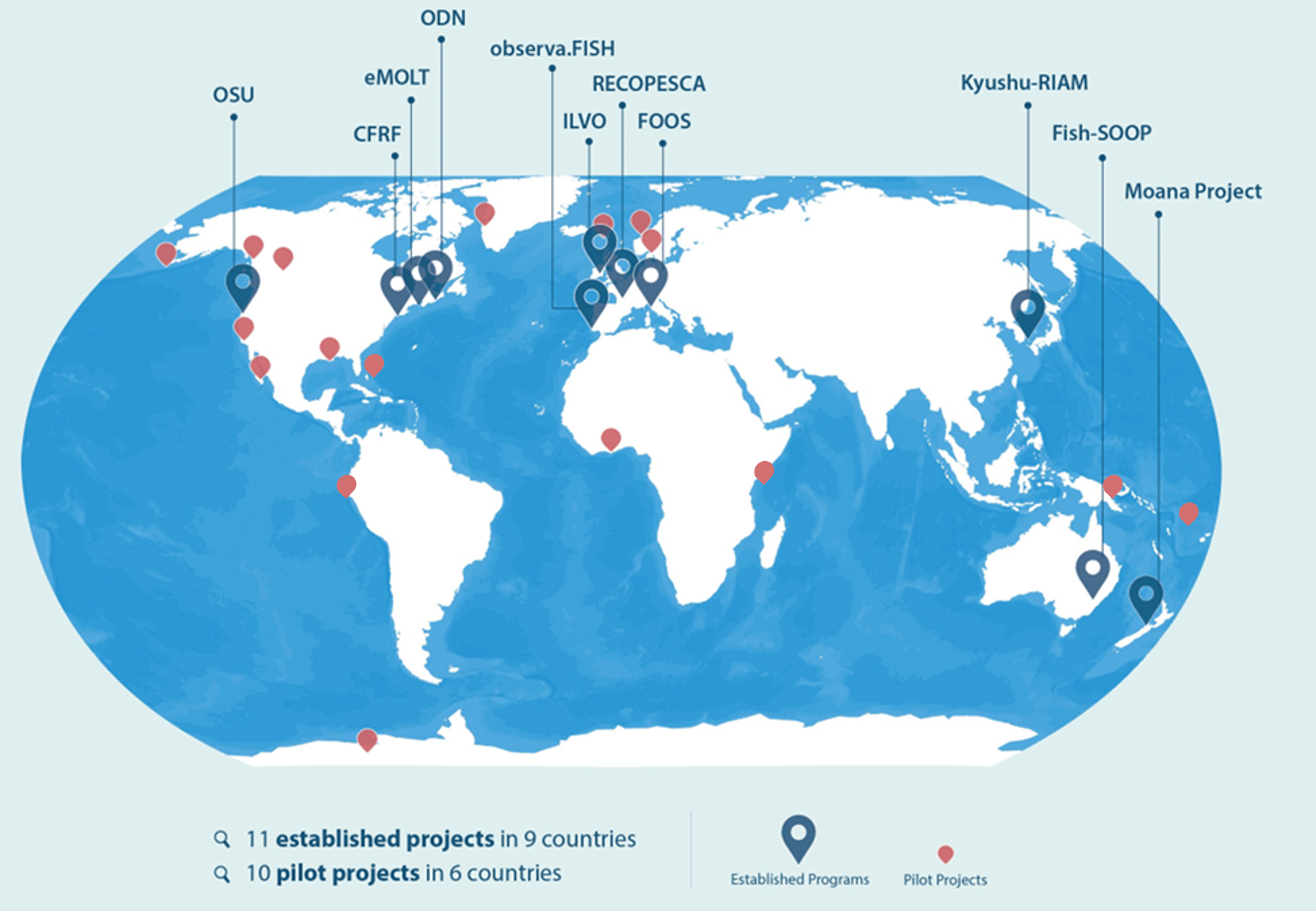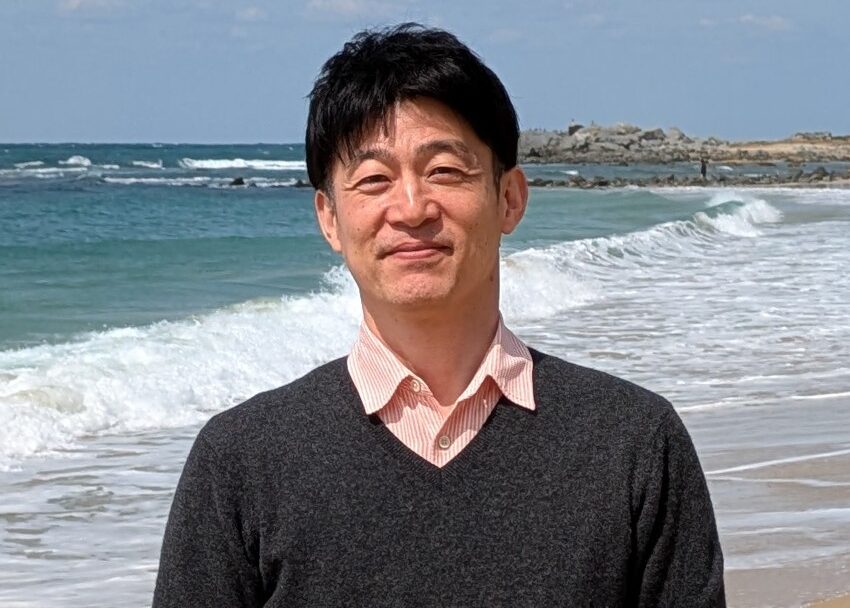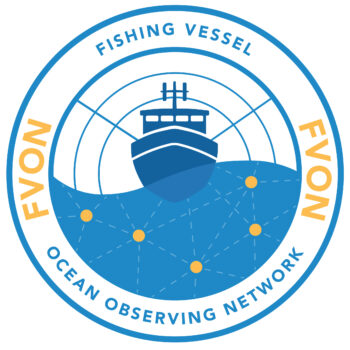
THE COASTAL SUBSURFACE DATA GAP
The Fishing Vessel Ocean Observing Network (FVON) tackles the problem of subsurface coastal data gaps. While existing methods of data collection—including buoys, drones, and satellites—work well for monitoring the open ocean, they struggle to operate in coastal and shelf seas due to complex bathymetry and dynamic currents. These near-shore waters are critical for blue economy activities and for the 2.4 billion people around the world who live within 100 kilometers of the ocean. Filling these data gaps at scale is key for complementing the capabilities of other GOOS networks.
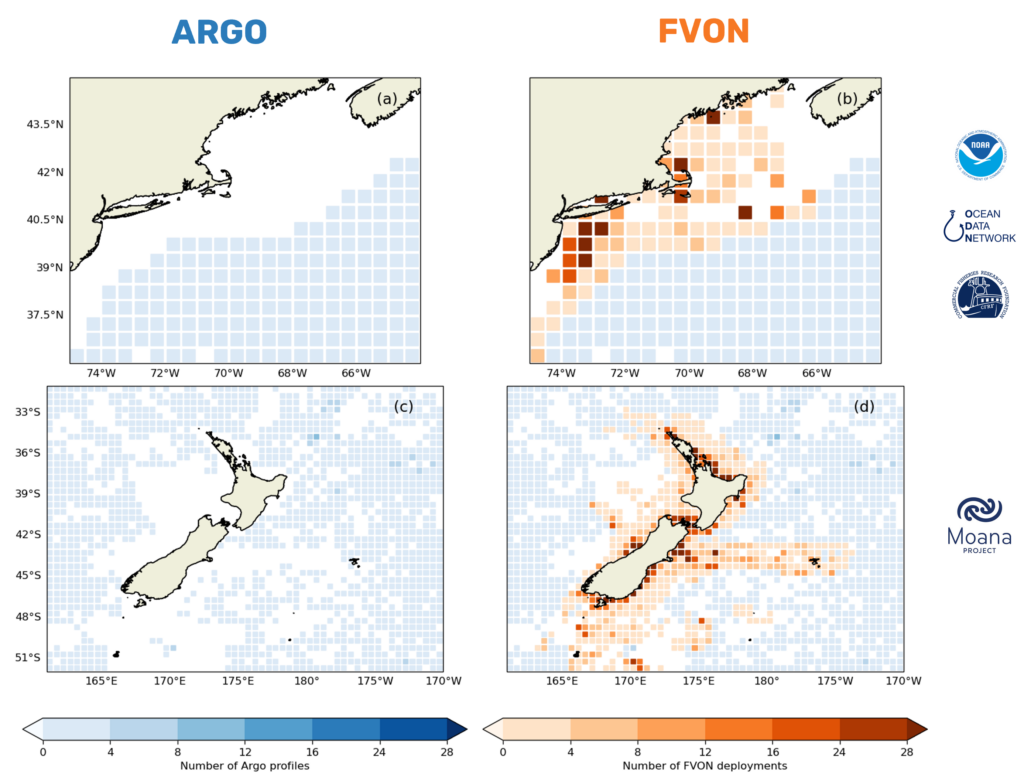
FISHING FOR DATA
Fishers and their fishing vessels are the ideal partners for data collection in shelf and coastal seas because they are already operating profiling platforms in these areas. With more than four million fishing vessels globally and most fishing already occurring in the relatively data-sparse nearshore areas of oceans, fishers can “fish” for data while conducting normal operations. As fishing gear deploys, sensors attached to the gear go along for the ride, collecting water column profiles while the gear catches fish. Such a design allows for cost-effective and scalable data collection. This, along with a fundamentally inclusive collaboration with fishers, is at the crux of FVON’s mission: to democratize ocean observation.
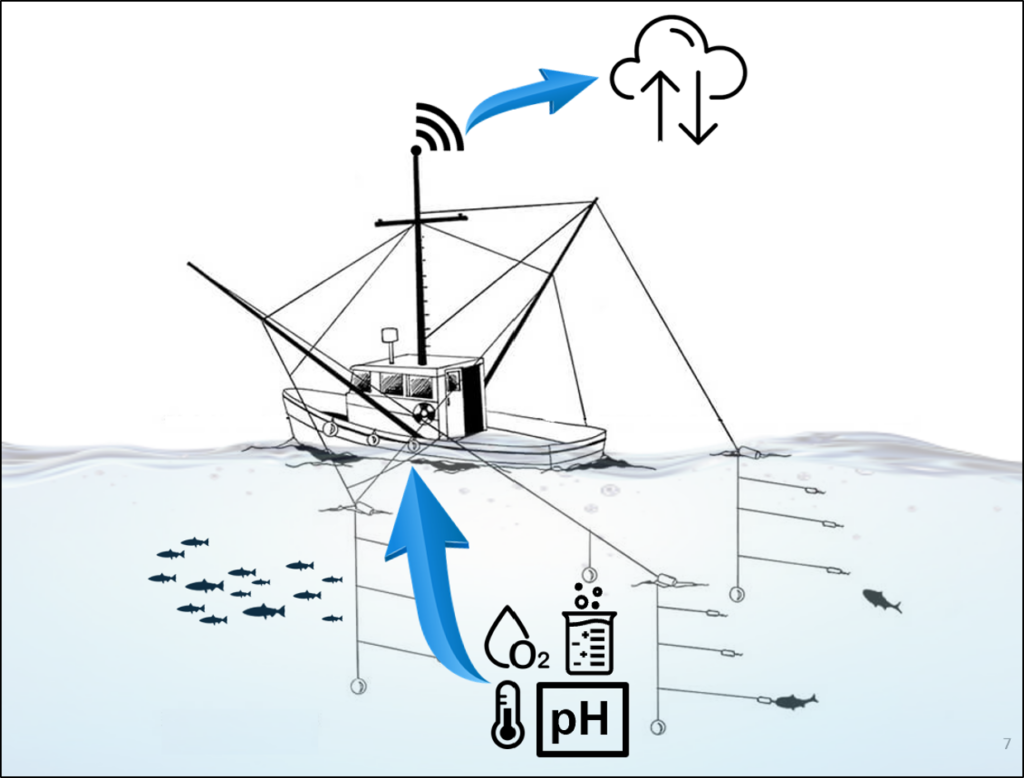
GOOS AFFILIATION
FVON is one of the observing networks contributing to the Global Ocean Observing System (GOOS) – an international programme providing leadership and strategic framework for observing the ocean in support of climate forecasting, operational services and ocean health.
Co-sponsored by the UNESCO’s Intergovernmental Oceanographic Commission (UNESCO-IOC), the World Meteorological Organization (WMO), the United Nations Environment Programme (UNEP), and the International Science Council (ISC), GOOS integrates a global network of national observing systems, expert panels, regional alliances, and data providers to enable informed decisions for a sustainable ocean and thriving communities worldwide.
The GOOS observing networks provide long-term, global, high-quality, in-situ observations of Essential Ocean Variables – the key measurements needed to assess ocean state and variability. The real-time visualizations of all network platforms and their metadata can be accessed through OceanOPS – the operational coordination and monitoring centre of GOOS.
GOVERNANCE STRUCTURE
Steering Committee Terms of Reference – Secretariat Terms of Reference
For more information on FVON programs, see the Partners page.
STEERING COMMITTEE
MEET THE TEAM
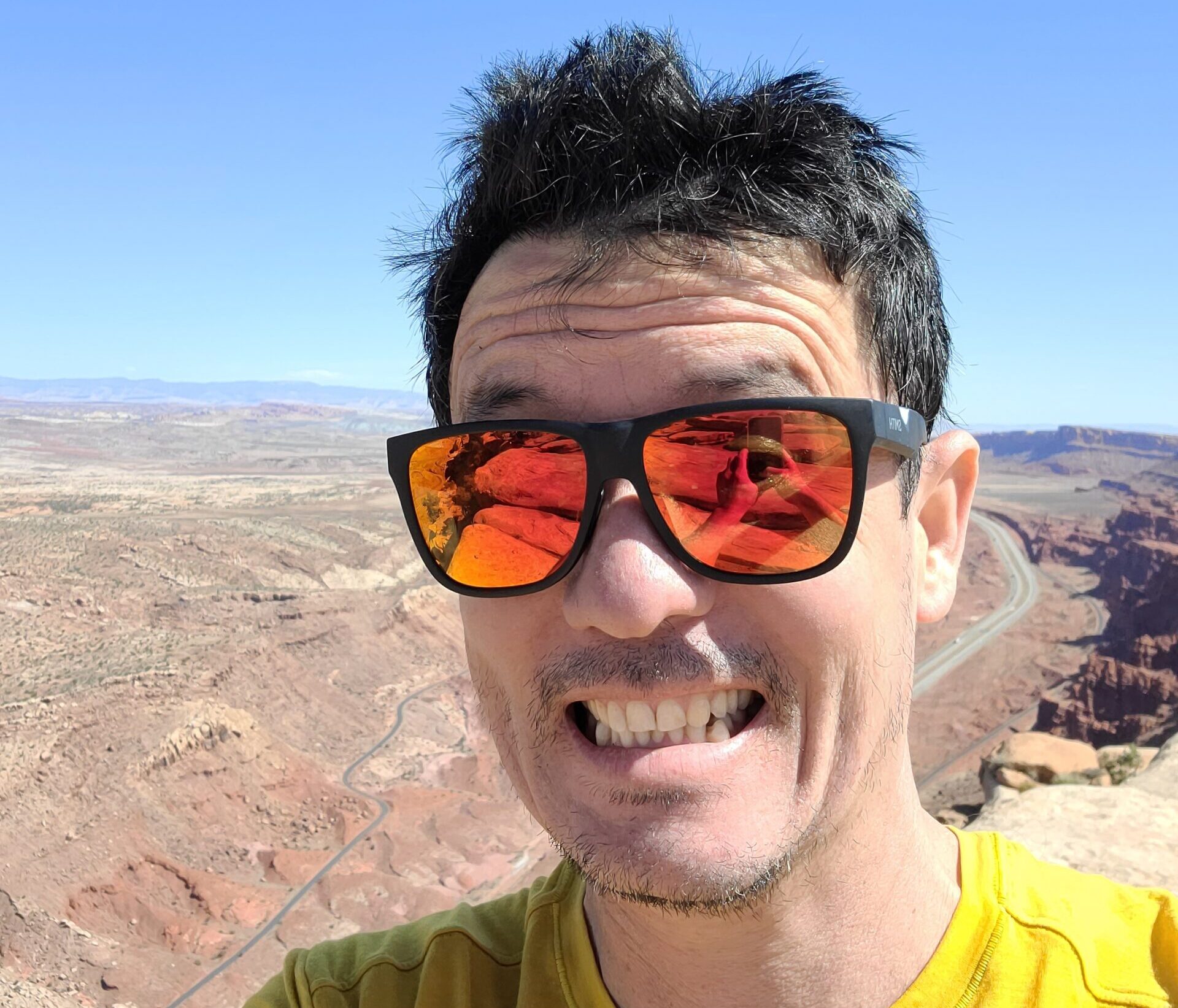
Christopher Cusack
EDF
… economist by training, Chris brings 25 years of experience working in and around global fisheries to the role. Chris is committed to collaborative action and the development of partnerships to achieve meaningful impact for coastal communities everywhere. Chris is a board member of Seafood and Fisheries Emerging Technologies (SAFET), and currently co-chairs the financial innovation subcommittee of FVON.
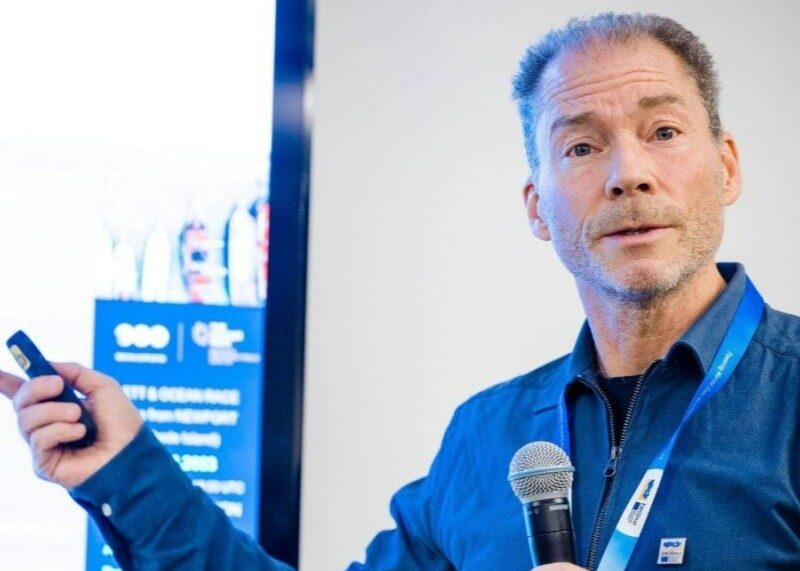
Patrick Gorringe
SMHI
… in Australia and teams in Europe by setting up, leading and motivating platform-oriented ocean observing Task Teams and linking their activities to global networks, programs and initiatives such as EMODnet, GOOS, the UN Ocean Decade and more.

Julie Jakoboski
AMOS
… where she led the ocean-observing component of what was previously the Moana Project and is now integrated into the Aotearoa Moana Observing System (AMOS) following the conclusion of the Moana Project’s research phase in 2024. Julie earned her PhD in Physical Oceanography in 2019 through the MIT/WHOI Joint Program, studying ocean circulation around the Galápagos Archipelago using autonomous underwater vehicles (Spray gliders). She also previously worked at NASA’s Jet Propulsion Laboratory
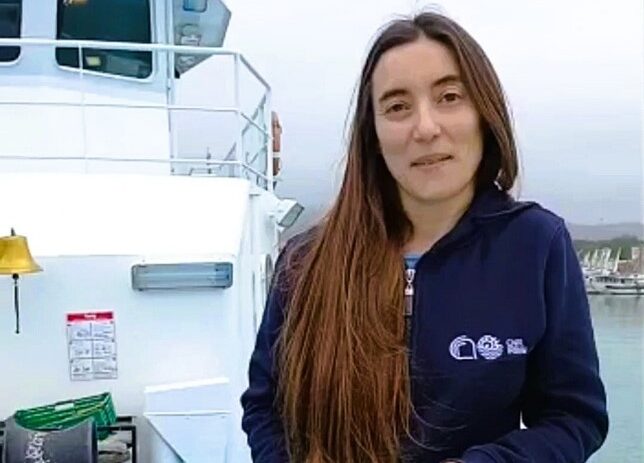
Michela Martinelli
CNR-IRBIM
… programs of important fishery resources, such as Norway lobster inthe Adriatic Sea. Since 2009 she has been involved in the use of oceanographic sensors on fishing vessels, and since 2013 she has been responsible for the Adriatic Fishery & Oceanography Observing Systems (AdriFOOS) infrastructure and related activities in EU projects. She is a founding member of the Fishing Vessel Ocean Observing Network.
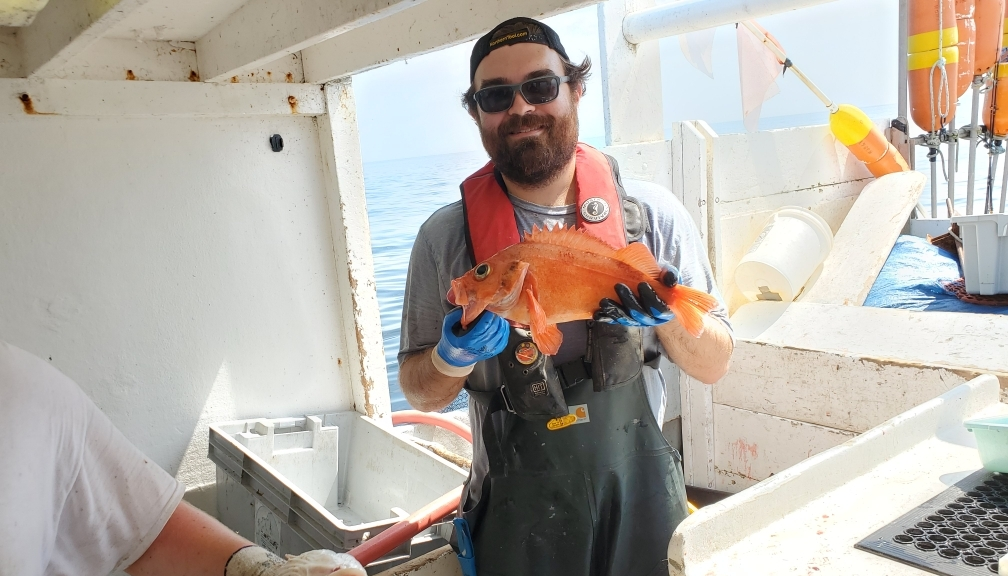
George A. Maynard, PhD
NOAA - eMOLT
His primary focus is managing the environmental Monitors on Lobster Traps and Large Trawlers (eMOLT) program, but he can also be found supporting other cooperative research projects both in the workshop and at sea. George earned his BS from the University of Connecticut, his MS from SUNY Plattsburgh, and his PhD from the University of Maine. Prior to joining NOAA, George worked as the staff scientist for a commercial fishing association and as an adjunct professor at Massachusetts Maritime Academy.

Hassan A. Moustahfid, PhD
NOAA IOOS
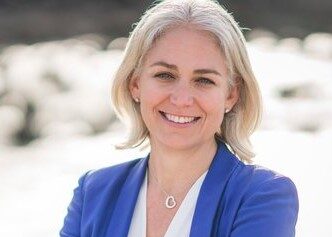
Moninya Roughan
FishSOOP
…on the oceanography of the East Australian Current. She has led major projects for industry, government, the Australian Research Council and the New Zealand Ministry of Business, Innovation & Employment. She has held continuous leadership roles in Australia’s Integrated Marine Observing System (IMOS) since 2007, leading the design and implementation of the observing and modelling efforts for the East Australian Current System. As the inaugural director of the Moana Project, she was instrumental in the conception, design and implementation of the Moana Sensor program in New Zealand was a springboard to her leadership in the FishSOOP program in Australia and the wider Indo-Pacific.
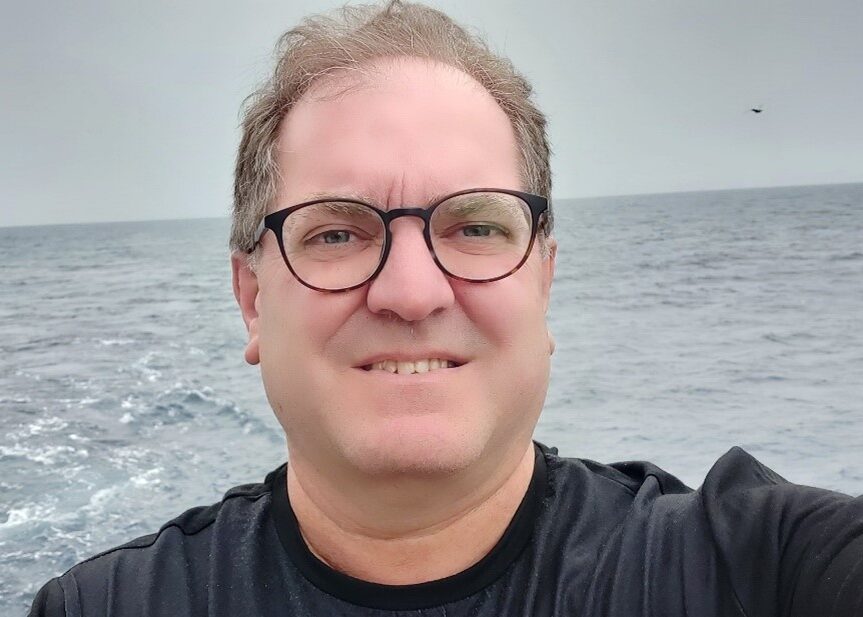
Miguel Santos
IPMA
…in Marine Sciences. He is the National Focal Point for the Argo Program, National Delegate Advisor for EMSO, IPMA’s representative to EuroGOOS, and the President of the Portuguese Oceanographic Society. His research interests are the physical-biological interactions in the ocean through an end-to-end approach, the development of ocean observing systems, the impact of global change in the ocean (especially in upwelling systems), fisheries oceanography, fish ecology and the applications of satellite remote sensing to marine fisheries and oceanography. He has more than 100 publications with more than 3250 citations and an h-index of 29 (Scopus)
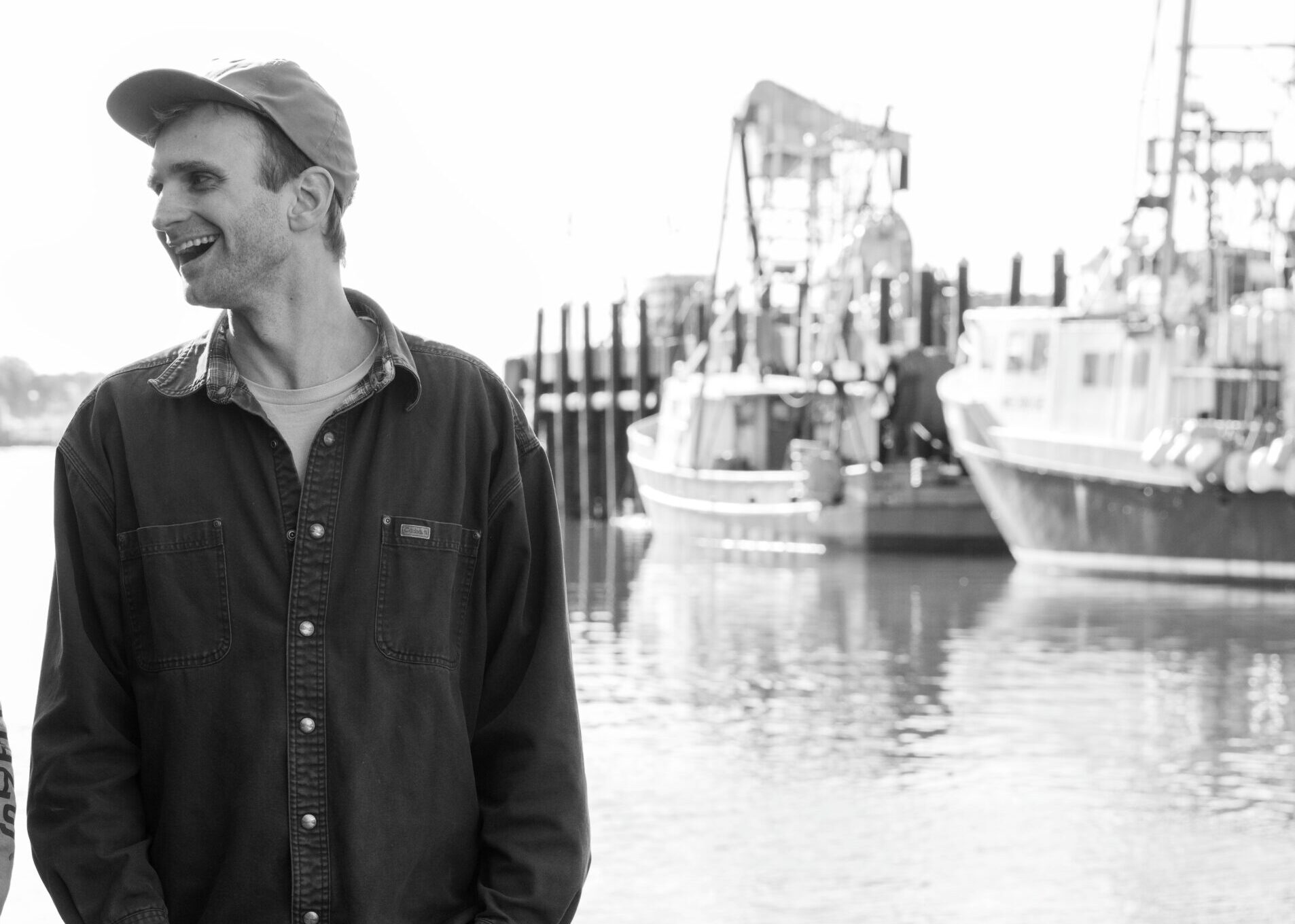
Cooper Van Vranken
ODN
…systems around the world. Cooper grew up on a small island in Maine and fished commercially both in the Maine lobster fishery as well as the salmon purse seine fishery in Prince William Sound. Cooper started his career as a mechanical design engineer, engineering robotic systems for aerospace manufacturing, before focusing on fisheries and getting an MSc in Fisheries Oceanography from the Technical University of Denmark (DTU-Aqua).
MEMBER COMMITTEE
Kwame Agyekum (University of Ghana; Geo Blue Planet)
Zac Anderson (University of New South Wales)
Brandon Bethel (University of The Bahamas)
Lancelot Blondeel (Flanders Research Institute for Agriculture, Fisheries and Food)
Ainhoa Caballero (AZTI)
Stella Caon (University of New South Wales)
Fiona Carse (UK Met Office)
Carles Castro Muniain (Ocean Data Network; Berring Data Collective)
Enrico Cecapolli (Consiglio Nazionale delle Ricerche)
Andrew Corso (Coonamessett Farm Foundation)
Caroline Cusack (Marine Institute)
Julie Duchêne (IFREMER)
César González-Pola (Instituto Español de Oceanografia)
Naoki Hirose (Kyushu University)
Hellen Kizenga (University of Dar es Salaam)
Véronique Lago (University of New South Wales)
Terry McConnell (McConnell Strategic Consulting)
Mbiru Moses Mapombe (University of Dar es Salaam)
Filipe Nhanquê (Ministry of Fisheries and Maritime Economy, Republic of Guinea Bissau)
Antonio Novellino (ETT S.p.A.; Università degli Studi di Genova)
Pierluigi Penna (Institute for Marine Biological Resources and Biotechnology of the National Research Council, Ancona)
Tanuspong Pokavanich (Kasetsart University)
Linus Stoltz (Commercial Fisheries Research Foundation)
Tetsutaro Takikawa (Nagasaki University)
R. Venkatesan (University of Massachusetts Dartmouth; Anna University)
Z. Aleck Wang (Woods Hole Oceanographic Institution)


